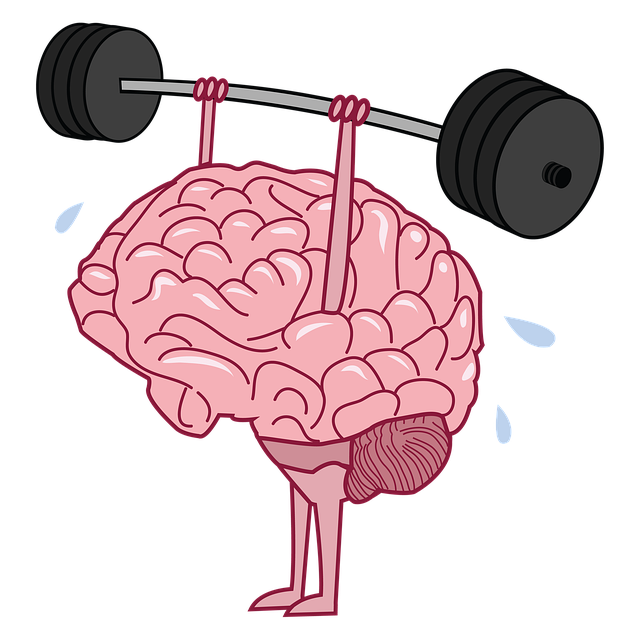Lafayette Conduct Disorder Therapy requires a comprehensive risk assessment strategy to identify and mitigate potential client risks, ensuring therapist safety and effective practice. This involves using tools like risk management plans, crisis protocols, de-escalation techniques, cultural competency training, and empathy building strategies. A balanced approach combines client safety with evidence-based practices, including Mind Over Matter principles, mental wellness journaling, and promoting self-care routines for both clients and therapists. These integrated methods create a supportive therapeutic environment, enhance care quality, and lead to positive outcomes for Lafayette Conduct Disorder Therapy cases.
“In the field of mental health, effective risk management is paramount to ensuring patient safety and fostering successful therapy outcomes. This article guides Lafayette conduct disorder therapists through a structured approach to risk assessment and planning. By understanding the nuances of risk evaluation in mental health practice, professionals can develop robust strategies to mitigate potential hazards. We explore practical steps for creating comprehensive risk management plans tailored to individual clients, especially those with challenging disorders like conduct disorders. Through evidence-based practices, therapists will learn to navigate risks effectively, ensuring safe and impactful therapy sessions.”
- Understanding Risk Assessment in Mental Health Practice
- Developing a Comprehensive Risk Management Plan
- Implementing Strategies for Safe and Effective Therapy with Lafayette Conduct Disorder Cases
Understanding Risk Assessment in Mental Health Practice

Risk assessment is a cornerstone of effective mental health practice. For professionals like those offering Lafayette Conduct Disorder Therapy, understanding and implementing robust risk assessment techniques are vital to ensuring client safety and managing potential risks within the therapeutic environment. This involves meticulously evaluating clients’ historical data, current state, and behavioral patterns to identify any signs of escalating distress or harmful tendencies. By integrating these insights into comprehensive risk management plans, therapists can proactively mitigate risks and intervene early, preventing potential crises.
In the context of Burnout Prevention Strategies for Healthcare Providers, mental health professionals must prioritize self-care practices such as Inner Strength Development and Self-Care Routine Development for Better Mental Health. Regularly assessing both clients’ and their own mental well-being is crucial to fostering a supportive and healthy therapeutic ecosystem. This proactive approach not only enhances the quality of care but also empowers professionals to navigate complex cases, including those dealing with Conduct Disorders, with enhanced resilience and clarity.
Developing a Comprehensive Risk Management Plan

Developing a comprehensive risk management plan is an essential step for mental health professionals to ensure safe and effective practice. This involves identifying potential risks and hazards within the therapeutic setting, such as client violence or self-harm, and implementing strategies to mitigate those risks. A robust plan should incorporate various components, including risk assessment tools, crisis intervention protocols, and de-escalation techniques tailored to different client populations, like those with conduct disorders in Lafayette therapy settings.
By integrating empathy building strategies and healthcare provider cultural competency training into the risk management framework, professionals can better understand and address diverse client needs. This holistic approach fosters a safer environment, enhances therapeutic alliances, and ultimately supports positive outcomes for clients navigating challenging mental health issues.
Implementing Strategies for Safe and Effective Therapy with Lafayette Conduct Disorder Cases

Implementing strategies for safe and effective therapy with Lafayette Conduct Disorder cases requires a nuanced approach that prioritizes both client safety and evidence-based practices. Mental health professionals working with this population must be adept at navigating complex behaviors and emotional responses, while fostering an environment conducive to healing. By integrating Mind Over Matter Principles, therapists can empower individuals to develop coping mechanisms and gain insight into their actions, breaking the cycle of disruptive behavior.
Incorporating regular Mental Wellness Journaling Exercise Guidance offers a valuable tool for self-reflection and emotional regulation. Encouraging clients to document their thoughts, feelings, and experiences allows them to identify triggers, process emotions, and track progress. Additionally, promoting the Self-Care Routine Development for Better Mental Health is essential for mitigating stress and preventing burnout among therapists while supporting clients in adopting healthy habits that contribute to overall well-being.
Risk management planning is an indispensable tool for mental health professionals, especially when working with complex cases like those involving Lafayette Conduct Disorder. By understanding risk assessment and implementing a comprehensive strategy, therapists can create a safe and effective therapeutic environment. This includes tailored approaches to manage potential risks, ensuring the well-being of both clients and practitioners. Effective risk management not only enhances the quality of care but also enables professionals to navigate challenging cases successfully.














